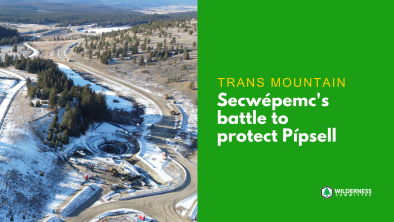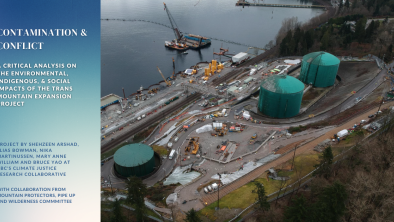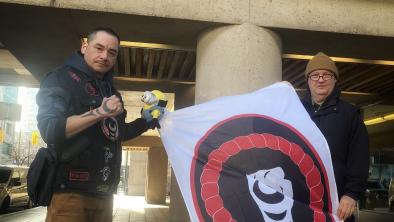Tanker traffic irks NDP politicians
Victoria News
Increasing oil tanker activity in B.C.’s northern waters has West Coast NDPers calling on Ottawa and Victoria to “formalize” a long-standing moratorium on tanker traffic and offshore exploration.
Victoria MP Denise Savoie, Nanaimo-Cowichan MP Jean Crowder, Vancouver-Hastings MLA Shane Simpson and Victoria-Hillside MLA Rob Fleming gathered at Clover Point recently to accuse the federal Conservatives and B.C Liberals of allowing the resumption of large-scale oil shipping in violation of an informal ban that has been in place for more than 30 years.
Savoie said since April 2006 at least 10 oil tankers have arrived in Kitimat loaded with liquified natural gas and condensate, both petroleum by-products whose uses include diluting petroleum reserves trapped in the Alberta tar sands.
“There have been tankers carrying 350,000 barrels of condensate that’s used to dilute the tar and this is happening under the radar,” she said. “It’s urgent that we formalize the moratoria so these long-standing policies are clear and official.”
Before April 2006, large oil tankers had been absent from Hecate Strait for close to three decades, said Oonagh O’Connor, spokesperson for the Sointula, B.C.-based Living Oceans Society.
“The first crude oil tanker of that size along that area of the coast occurred in April,” O’Connor said. “The liquified natural gas, they’re importing it to Kitimat and supplying the tar sands, at least in part.”
While environmentalists often refer to the ban on tanker traffic and offshore drilling as a moratorium, it’s actually a policy that was put in place in 1972 and, until now, adhered to by successive Liberal and Conservative governments over a 35-year period.
Western Canada Wilderness Committee spokesman Ken Wu, also on hand Friday, said the moratorium started as a ban on tanker traffic and expanded to include exploration and drilling.
“The federal government has basically hived off oil transport from drilling,” Wu said.
Simpson, the NDP energy critic, accused both levels of government of failing to inform the public of their plans to ignore the moratorium.
“What the federal and provincial governments call consultation and rigorous oversight doesn’t fit the bill for most other people,” Simpson said.
Washington, Oregon and California all have formal legislation dealing with banning drilling and tanker traffic, said Simpson, alluding to Premier Gordon Campbell’s recent photo-ops with California Governor Arnold Schwarzenegger.
“The jurisdiction that’s completely offside with this is British Columbia,” Simpson said.
Natural Resources Minister Gary Lunn was unavailable to for comment on this story. But last week he told the Canadian Press there is no moratorium on tanker traffic. Lunn acknowledged there is a moratorium on offshore drilling, but said restrictions on tanker traffic amounts to a “voluntary exclusion zone.”
Will Horter of the left-wing advocacy group the Dogwood Initiative accused Lunn of ducking the issue.
“He doesn’t want to go on the record on this story because he knows he’s vulnerable,” Horter said.
He said plans for two new port facilities indicate the province and the federal government plan to increase tanker traffic. One of those facilities is being built in Kitimat and will bring petroleum products to and from the tar sands. The other will pipe liquified natural gas into Prince Rupert, either for the domestic market or for use at the tar sands project.


